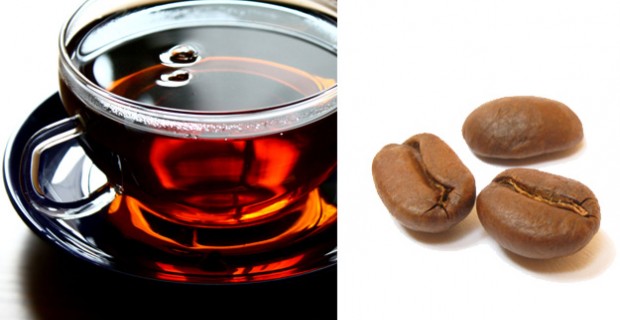
The Truth About Caffeine
Article By: @MayKingTea
As a child I remember playing the game Chinese Whispers and it was always a lot of fun at the end of the game when we discover what was originally said compared to what was finally said. I often feel that that the myths surrounding caffeine has gone through a game of Chinese Whispers and here are some of the most popular ones I’d like to share in hopes of getting to the truth about caffeine.
Myth Number 1
There is more caffeine in tea than there is in coffee. In short, yes, there is more caffeine in tea than coffee but in the dried form (when comparing a pound of tea leaves to a pound of coffee). However if you make a cup of tea, you’re only using about a teaspoon (2.5-3grams) and when you have a coffee made by your favorite barista, they might use approximately 9 grams depending on how you like your coffee. In this case then it would make sense that there is approximately two thirds more caffeine in coffee than a cup of tea. This is an approximate guide of course.
Myth Number 2
Tea is dehydrating. This is a very common tea myth due to the fact that tea contains caffeine. It’s a myth that I’m constantly battling against when talking to health practitioners. The logic goes like this: tea contains caffeine; caffeinated drinks may have diuretic properties and therefore tea is dehydrating. According to Wikipedia, tolerances can be developed to counteract the diuretic effects of caffeine which are often experienced by those who are not used to drinking caffeinated beverages. In fact studies have failed to support the notion that ordinary consumption of tea contributes significantly to dehydration. The European Journal of Clinical Nutrition recommends that the tea can actually contribute to the daily recommended fluid intake of 2 liters a day.
Myth Number 3
Decaffeinating Tea in 30 seconds. A lot of tea websites and books support this claim so why would I disagree with the written word? Then the very well respected Nigel Melican came into my Twitter radar several years ago to put this myth to rest and my mind at ease. Just like decaffeinating coffee, there are various processes that can decaffeinate tea. If it was easy to remove 80% of the caffeine in 30 seconds (by throwing away the tea after it has been brewed after 30 seconds), surely the big tea companies would use this method of extraction rather than spend an enormous amount of money on commercial decaffeination, Nigel writes. In an interview, Nigel quotes a study that states- to remove the 80% of the caffeine, one would actually have to leave the tea steeping in boiling water closer to 5 minutes rather than 30 seconds. I suspect a lot of the flavor and tea compounds would also be removed after five minutes should the tea drinker decide to throw away that first cup (or to use the industry term, infusion) and make a second cup with the same tea leaves. (Note also that tea that has been commercially decaffeinated does not remove all traces of caffeine).
Myth Number 4
White Tea contains the least amount of caffeine. Another myth that has unfortunately been bantered around in tea books and tea websites but the opposite has been argued. Many factors determine the caffeine content among each of the differing categories of tea (the different categories of tea include white, yellow, green, oolong, black and pu’erh).
The quick answer to how much caffeine is contained in each of these categories of tea is that it depends. It depends on what variety of tea plant the leaves have been plucked from; which tea leaves have been plucked; the season the leaves have been plucked, and the tea processing the leaves have gone through.
In all, the proven and myriad health benefits of drinking tea far outweigh the traces of caffeine that exist with some brews. Need further proof? Just ask the senior citizens of Asia where tea is not a mere beverage but a way of life.
Connect with Tea Expert: @MayKingTea or May King Tea on Facebook


 Welcome to Food, Travel & Life with The Asian Fusion Girl. Learn more about the AF Girl and her various projects
Welcome to Food, Travel & Life with The Asian Fusion Girl. Learn more about the AF Girl and her various projects




